All News
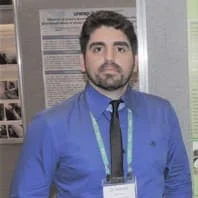
Antonio Humberto Hamad Minervino Ph.D.
Join us December 4, 2025 for a One health Seminar with Dr. Antonio Humberto Hamad Minervino – Epidemiology of pathogens, ticks and tick-borne diseases, pathogen discovery, One Health, and Amazonian natural products – Federal University of Western Pará – UFOPA, Brazil. Antonio Humberto Hamad Minervino is an Associate Professor at the Federal University of Western […]
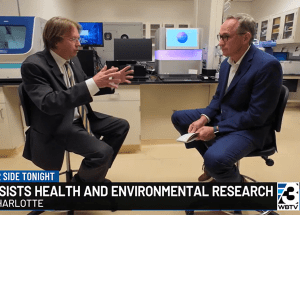
New research shows how bird flu is evolving
ON YOUR SIDE TONIGHT: Jamie Boll and WBTV recently visited UNC Charlotte’s CIPHER Center to explore how bird flu is evolving. Jamie sat down with Dr. Daniel Janies to discuss his cutting-edge research and the technology advances made since the COVID-19 pandemic. Their conversation highlighted the role of artificial intelligence in current studies and examined […]
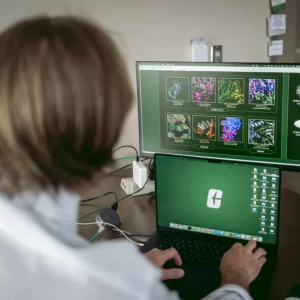
Trying to outpace the next pandemic
UNC Charlotte Distinguished Professor and Director of CIPHER, Dan Janies was recently featured The Charlotte Optimist. The article titled The UNC Charlotte scientist who’s trying to outpace the next pandemic, highlights the research of Dr. Dan Janies, UNC Charlotte’s leading Bioinformatics and Genomics department, and the work being done at the CIPHER center to predict […]
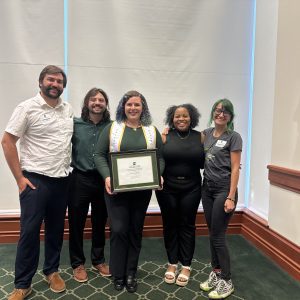
University Commendation for Leadership & Service
Caitlin BrabbleRose, Ph.D. Candidate in the Reitzel Lab was awarded the University Commendation for Leadership & Service. Caitlin is a Doctoral Writing Fellow and supports The Graduate and Postdoctoral Writing Center at The University of North Carolina at Charlotte. We are very proud and applaud your accomplishments.
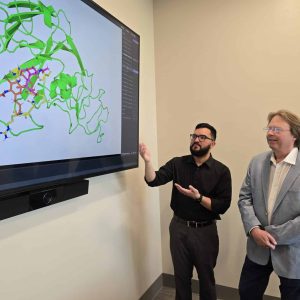
Inside the Race to Track and Stop the Spread of Avian Flu
In a paper published last month, Janies, a distinguished professor of bioinformatics and genomics at the University of North Carolina at Charlotte, found that current avian flu strains are evolving to escape mammalian immune responses. “These results indicate that the virus has potential to move from epidemic to pandemic status,” the researchers said. Antibodies, which […]
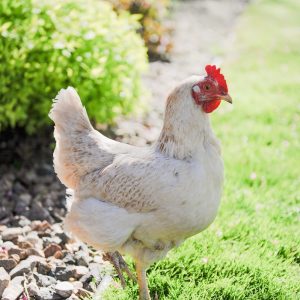
Experts Warn Bird Flu Could Pose Growing Risk to Human Health
Recent research from the University of North Carolina at Charlotte reveals that the H5N1 virus, commonly known as bird flu, is evolving quickly and becoming more adept at infecting mammals, including cows and humans. Lead author Colby Ford highlights that vaccines developed for earlier strains of H5N1 may be less effective against these newer variants. […]
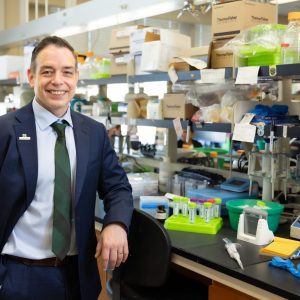
Truman Lab awarded new R01 grant from the National Institutes of Health
The Klein College of Science’s Truman Lab has been awarded a new R01 grant from the National Institute of General Medical Sciences (NIGMS), part of the National Institutes of Health (NIH). From 2024 to 2028, the new grant will provide $1,278,920 for the project “Understanding the role of Hsp70 chaperone code in proteostasis,” adding to […]
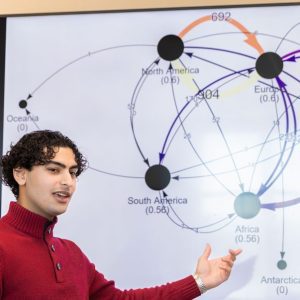
Battling Bird Flu: Khaled Obeid Dissects Data on Avian Influenza
Avian influenza, or bird flu, is a virus that is on the mind of many in the United States and globally. The disease, which historically is transmitted by wild and farm birds, recently has jumped to other farm animals and humans. The mass infections of chickens has forced farmers to reduce their flocks resulting in […]
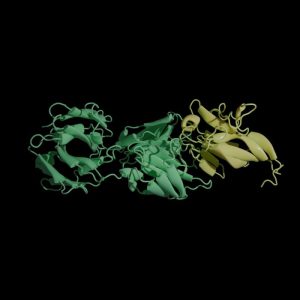
H5N1 bird flu mutates to better hijack human cells
From egg prices to pet food recalls – and now, confirmation that another strain of bird flu has infected a large commercial flock of broiler chickens on a Mississippi farm – headlines are capturing escalating concern over H5N1’s spread. According to recent findings by a team of bioinformatics and genomics experts at the University of North Carolina at Charlotte, […]